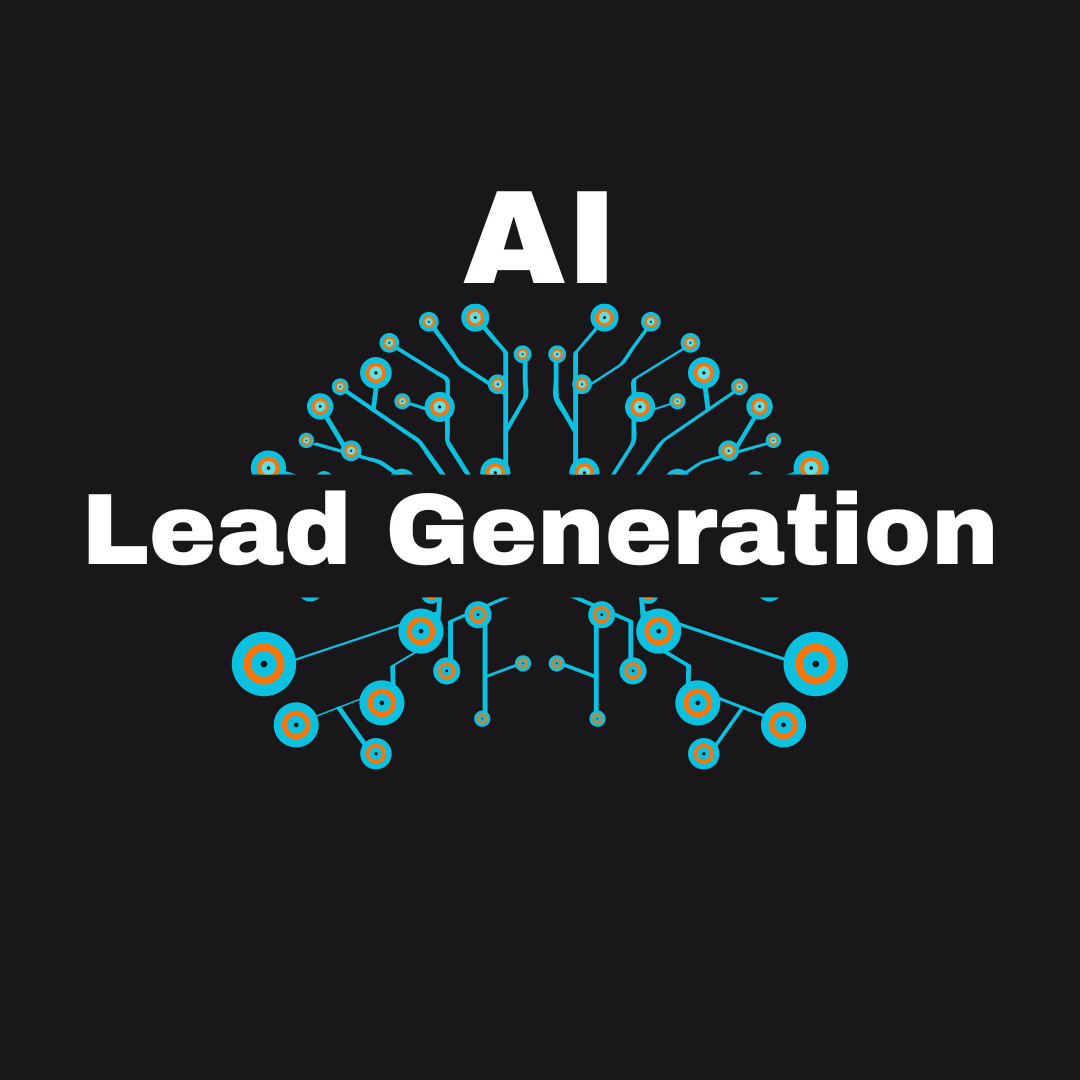What is Conversational AI & How Does It Help Generate Leads?
Key Takeaways
- Conversational AI uses natural language processing to have human-like conversations with potential customers
- These AI systems work 24/7 across multiple channels to capture leads
- AI chatbots qualify leads automatically by asking smart questions
- Personalization from AI increases conversion rates by adapting to each user
- Businesses using conversational AI typically see better lead quality and lower costs
- Website chatbots, social media bots, email campaigns, and virtual event assistants are common applications
- Implementing AI for lead generation doesn’t require technical expertise with today’s tools
What Exactly Is Conversational AI?
Have you ever chatted with a computer that felt almost like talking to a real person? That’s conversational AI in action. Unlike old-school chatbots that just give canned answers, conversational AI actually understands what you’re asking and responds in a natural way.
These smart systems combine a few cool technologies. They use natural language processing (NLP) to make sense of the words you type or say. They also use machine learning to get better over time – kinda like how kids learn from making mistakes.
The big difference between basic chatbots and conversational AI is how they handle unexpected questions. Basic bots get confused easily and say things like “Sorry, I don’t understand.” But conversational AI can figure out what you mean even when you ask something in a weird way.
I’ve tested dozens of these systems, and it’s amazing how they can keep a conversation flowing naturally. They remember what you said earlier and can pick up context clues just like humans do.
For businesses trying to find new customers, this tech is a game-changer. Instead of making people fill out boring forms, conversational AI chats with them in a friendly way that doesn’t feel like being sold to.

Automating First Contact with Potential Customers
The first few seconds when someone visits your website can make or break your chance to get their business. This is where conversational AI really shines by saying hello right away.
AI chatbots jump in immediately with a friendly greeting when someone lands on your site. They ask smart questions based on which page the person is viewing. For example, if someone’s looking at pricing, the AI might ask if they need help comparing plans.
The best part? These digital helpers never sleep! They’re ready to chat at 3 AM on Christmas morning just as happily as during business hours. This means no more lost leads because nobody was around to answer questions.
I’ve seen small businesses double their leads simply by adding a smart chatbot to their website. One local accounting firm I worked with captured 37 new qualified leads in their first week using conversational AI – all outside normal business hours when their office was closed.
These systems can work across multiple channels too. The same AI can chat with people on your website, Facebook page, and through WhatsApp without needing separate setups.
How AI Qualifies Leads Automatically
Not all website visitors become customers. Some are just browsing, others aren’t a good fit, and only a few are ready to buy. Sorting through all these people manually takes forever – but AI makes it easy.
AI-driven processes can qualify leads much faster than humans. They ask the right questions to figure out if someone is a good match for what you’re selling. The AI can check things like:
- What problem they’re trying to solve
- How big their budget is
- When they want to make a decision
- Who else needs to approve the purchase
The really smart part is how the AI adjusts its questions based on previous answers. If someone mentions they’re researching for a project next year, the AI knows they’re not buying today and switches to nurturing mode instead of trying to close a sale.
These systems also collect contact details in a natural way. Rather than forcing someone to fill out a form with 10 fields, the AI might say, “Would it be helpful if I sent some examples to your email?” When they say yes and share their address, you’ve captured a lead without any friction.
The qualified leads then get sent to your sales team with helpful notes about the conversation. Your salespeople can focus on closing deals instead of sorting through tire-kickers.
Making Every Conversation Personal
People hate feeling like just another number. Conversational AI helps solve this by making each interaction feel personal and unique.
Hyper-personalization techniques take regular conversations to the next level. These smart systems remember past interactions and adjust their approach based on user behavior. If someone previously showed interest in a specific feature, the AI will highlight related benefits in future conversations.
Modern AI can also pick up on subtle clues about communication preferences. Some people want direct, fact-based responses while others respond better to friendly, casual language. Advanced systems adjust their tone and style to match each person.
One cool example I’ve seen is a real estate chatbot that changed its entire approach based on whether someone was a first-time buyer or an experienced investor. The conversations felt completely different – one focused on explaining basic concepts while the other jumped straight to ROI calculations.
These personalized touches make people feel understood, which builds trust faster. And when people trust your brand, they’re much more likely to become customers.
Reaching Leads Across Different Platforms
Your potential customers aren’t just on your website. They’re scrolling through social media, checking email, and using messaging apps. Conversational AI helps you reach them wherever they spend time.
Modern AI systems can maintain consistent conversations across multiple channels. Someone might start chatting on your website, continue the conversation via email, and then pick up where they left off on Facebook Messenger days later. The AI remembers the entire history and keeps things flowing naturally.
LinkedIn automation tools are particularly effective for B2B companies. AI can help find potential clients using Boolean search techniques, send personalized connection requests, and even engage in meaningful conversations that generate leads.
Email remains an incredibly effective channel when powered by AI. AI email outreach platforms can craft personalized messages at scale, analyze response patterns, and automatically follow up with leads who showed interest but didn’t convert.
One restaurant owner I advised used an AI system that sent text messages about special events to past customers. What made it special was how it remembered each person’s food preferences and only sent relevant offers. Their response rate was nearly 4x higher than traditional mass texts.
Improving Lead Quality with AI Analysis
Getting lots of leads isn’t helpful if they’re all low quality. Conversational AI doesn’t just increase lead quantity – it makes each lead more valuable through smart analysis.
AI lead scoring examines multiple factors to predict which leads are most likely to convert. It looks beyond basic demographic information to analyze:
- Engagement patterns (how they interact with your content)
- Questions they ask during conversations
- Time spent on high-intent pages
- Specific pain points mentioned
These systems can identify buying signals that humans might miss. For example, when someone asks about integration with another product they use, that often indicates serious interest. The AI flags these high-potential leads for immediate follow-up.
AI-powered prediction goes even further by identifying patterns from your successful past customers. If your best clients tend to share certain characteristics or behaviors, the AI prioritizes similar prospects in your funnel.
I worked with a software company that used AI to analyze conversation transcripts from their chat system. They discovered that leads who asked about pricing after discussing specific features (rather than asking about price first) were 3x more likely to become customers. This insight helped them reorganize their entire sales approach.
Cost Benefits and Scaling with AI
Growing your lead generation usually means hiring more people – which gets expensive fast. Conversational AI changes this equation by handling thousands of interactions simultaneously.
The math is pretty compelling. A good sales development rep might handle 50-100 outreach attempts per day. An AI system can engage with unlimited prospects across multiple channels without getting tired or needing breaks.
This scalability means you can expand into new markets or launch campaigns without worrying about staffing constraints. When a campaign performs well, you can instantly dial up the volume without hiring and training new team members.
The cost savings go beyond just replacing human hours. AI systems also:
- Reduce lead acquisition costs by qualifying prospects efficiently
- Minimize wasted effort on poor-fit leads
- Lower training expenses for sales teams
- Eliminate costs from missed follow-ups
- Provide 24/7 coverage without overtime or shift premiums
A mid-sized insurance agency I consulted for calculated that their conversational AI system paid for itself in the first month. It handled basic policy questions that previously took up 40% of their agents’ time, allowing those agents to focus on complex cases and closing sales instead.
For small businesses, this technology levels the playing field against bigger competitors. You can provide enterprise-grade responsiveness and follow-up without needing an enterprise-sized team.
Best Tools and Implementation Strategies
With so many options available, choosing the right conversational AI tools can feel overwhelming. Here’s a practical breakdown of what works best for different needs.
Top AI lead generation tools fall into several categories:
- Website chatbots that engage visitors and capture contact info
- Social media assistants that monitor mentions and respond to inquiries
- Email outreach platforms that personalize messages at scale
- Lead scoring systems that prioritize prospects based on behavior
- Virtual sales assistants that qualify leads before human follow-up
Implementation doesn’t have to be complicated. Most modern platforms offer templates and no-code setups that let you launch quickly. The key is starting small with a focused use case, like adding a chatbot to your highest-traffic web pages.
Integration with your existing systems is crucial. Look for tools that connect with your CRM, email marketing platform, and other marketing tech. This ensures lead data flows smoothly between systems without manual transfer.
Lead nurturing strategies work best when you combine conversational AI with thoughtful content. Create resources that address common questions, then let the AI deliver them at the right moment in the customer journey.
I’ve helped several companies implement these systems, and the most successful ones start with clear goals. Rather than trying to automate everything at once, focus on a specific pain point like capturing after-hours leads or qualifying website visitors before sales calls.

Frequently Asked Questions
How much does conversational AI for lead generation typically cost?
Prices vary widely based on features and scale. Basic chatbots start around $50/month, while comprehensive enterprise solutions can cost $1,000+/month. Many platforms offer usage-based pricing that grows with your needs.
Do I need technical skills to implement conversational AI?
Not necessarily. Modern platforms provide templates and visual builders that don’t require coding. You’ll need to plan conversation flows and integrate with your existing systems, but the technical barriers are much lower than they were a few years ago.
How long does it take to set up a conversational AI system?
Simple chatbots can be deployed in a day or two. More complex implementations with multiple use cases and integrations typically take 2-4 weeks. The key is starting with a focused application and expanding from there.
Will conversational AI replace my sales team?
No. AI excels at initial engagement, basic qualification, and repetitive tasks, but human sales professionals remain essential for building relationships, handling complex objections, and closing deals. The best approach combines AI efficiency with human expertise.
How accurate is lead scoring with conversational AI?
Modern systems achieve 75-85% accuracy in predicting high-value leads when properly configured. This accuracy improves over time as the AI learns from your specific customer data and conversion patterns.
Can conversational AI work for B2B and complex sales?
Yes. B2B applications often focus on qualifying leads, scheduling demos, and delivering relevant content rather than trying to close complex deals directly. The AI handles initial steps while guiding qualified prospects to human experts.
How do I measure the ROI of conversational AI?
Track metrics like lead capture rate, qualification accuracy, sales team productivity, and conversion rates before and after implementation. Most platforms provide analytics dashboards that help quantify improvements.
Can AI Replace Human Sales Reps? A Deep Dive
Can AI Replace Human Sales Reps? A Deep DiveKey Takeaways AI Strengths Human Advantages Best Approach 24/7 availability Emotional intelligence Hybrid model combining both Handles thousands of interactions Builds real relationships AI for routine tasks Cost-effective...
The Science Behind AI-Powered Lead Generation
The Science Behind AI-Powered Lead GenerationKey Takeaways Pattern Recognition - AI analyzes massive datasets to find hidden customer patterns, identifying high-value prospects faster than any human could Predictive Analytics - Machine learning forecasts which leads...
The Best AI Tools for Automating LinkedIn Outreach
The Best AI Tools for Automating LinkedIn Outreach Key Takeaways Expandi offers the most advanced personalization for LinkedIn messages with excellent safety features LaGrowthMachine excels at multi-channel campaigns that combine LinkedIn, email, and Twitter...



